
Who doesn’t love a bargain? You can save a lot of money acquiring plants by growing them from seed or obtaining them as seedlings. Sometimes it’s the only way you can even get the plant, as it’s not common enough to be sold in garden centers. The tradeoff? Those plants will take some time to reach blooming size. Most of the plants I’m about to show you have been growing in my garden for a couple of years, but they’re only now starting to look like something. But all of them are a bit unusual, so if you want to branch out from asters and black-eyed Susans, one of these plants might be just what you’re looking for.
Last year I think it had just one flower stalk, but this year it’s starting to make a statement. Mountain Fleece is one of the plants that Piet Oudolf has popularized in his meadow/prairie-style plantings. I have it growing in the Slope Garden, which I consider Oudolf-esque in design. I grew these from seed that Nan Ondra sent me. This clump (pictured above) is from seed sown five years ago. The seedlings from two years ago didn’t make flowers at all this year, but that may be because they are too shaded by the peonies they are planted behind.
I bought two seedlings of Verbascum roripifolium from Odyssey Perennials this year, but only this one bloomed.
Or, it could be the much more common New York ironweed (Vernonia noveboracensis). I’m having trouble figuring this out, because not too many sites show pictures of the leaves, and the flower color varies depending on how long that particular inflorescence has been in bloom. Also, I don’t think I’ve ever seen New York ironweed “in person.” New York ironweed is supposed to be taller; broad-leaved ironweed presumably has broader leaves. But I have nothing in my experience to compare it to.
Kirengeshoma palmata flowers hang down like primrose-yellow bells… This plant likes moist soil and a bit of shade. Online sources describe it as “shrub-like,” but while my plant is four to five feet tall, it’s not very bushy yet. Well, my division from my friend is only three years old. Actaea simplex ‘Black Negligee’ departs from the young-and-cheap plants theme of this post, as I got it in 2009. But, it is an unusual, fall-blooming perennial. The flowers smell like grapes warm in the sun, and the dark foliage provides a nice contrast to the green of the yellow wax bells. Somehow the common name of pink turtlehead pales in comparison. You’ve got to admit, those flowers have some zing. This was also shared by a friend. You can see a bit of the yellow wax bells in the background. They like the same moist conditions. Not only does it bloom in the fall (“late” in daylily parlance, which is autumn for me), but the flowers are both more numerous and smaller. And it’s tall for a daylily, too. I’m looking forward to dividing this and spreading it around my garden once it gets bigger.I hope you learned of at least one new plant to bring a little variety to your fall garden. And if you already grow some (or all) of these, tell me what you like about them.
Inspired by the words of Elizabeth Lawrence, “We can have flowers nearly every month of the year,” Carol of May Dreams Gardens started Garden Bloggers Bloom Day. On the 15th of every month, garden bloggers from all over the world publish what is currently blooming in their gardens. Check it out at May Dreams Gardens.
from Cold Climate Gardening https://ift.tt/2xovcQf
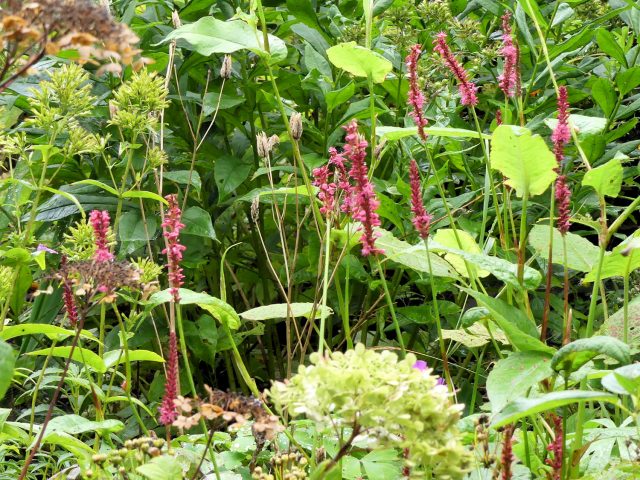
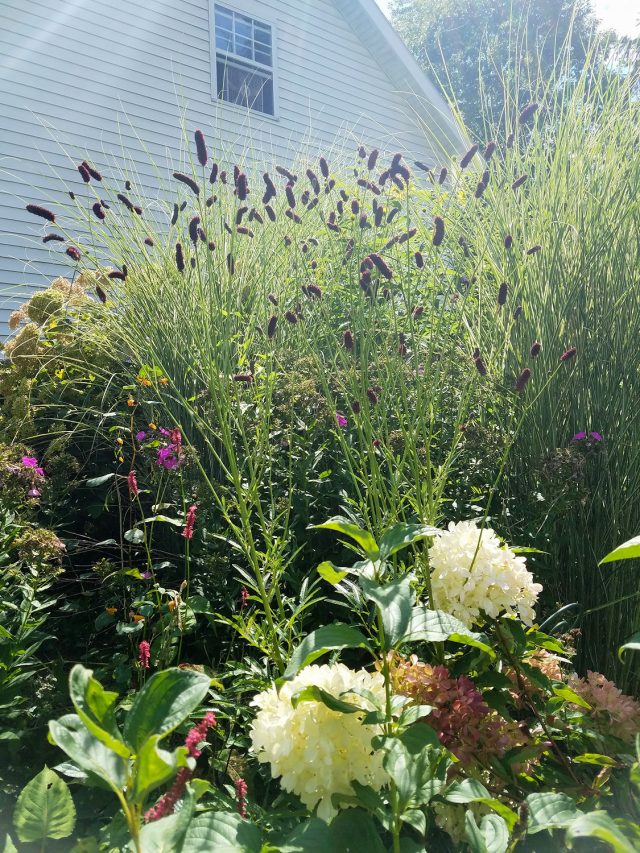


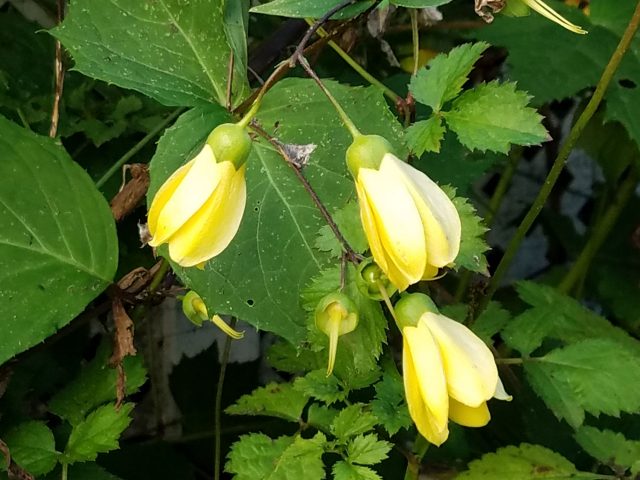
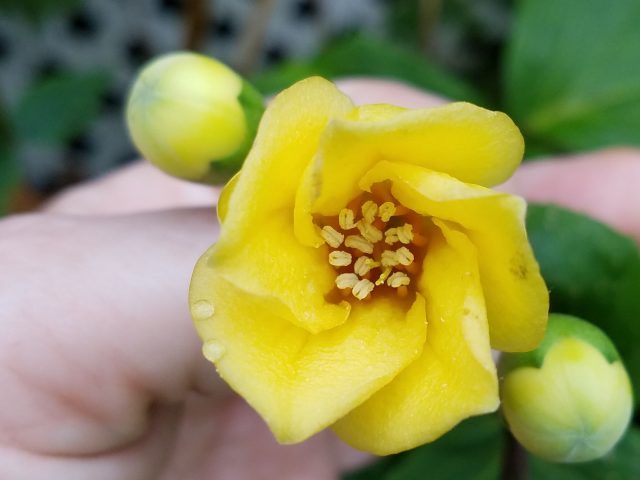
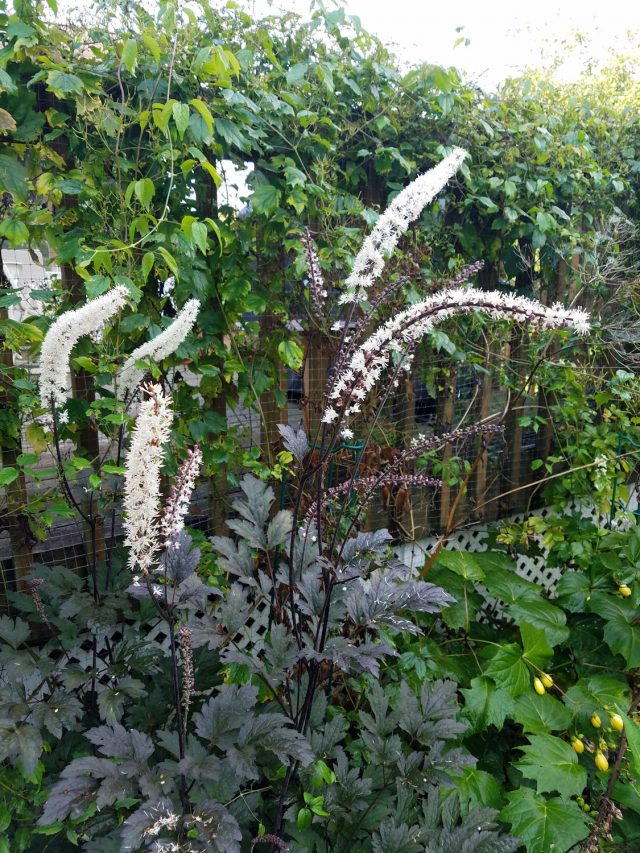
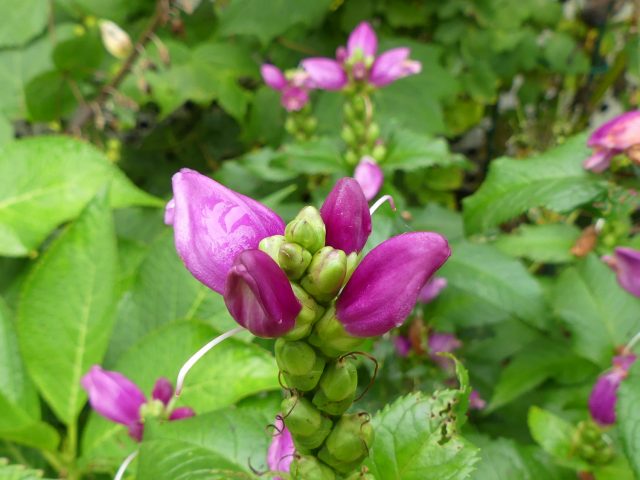
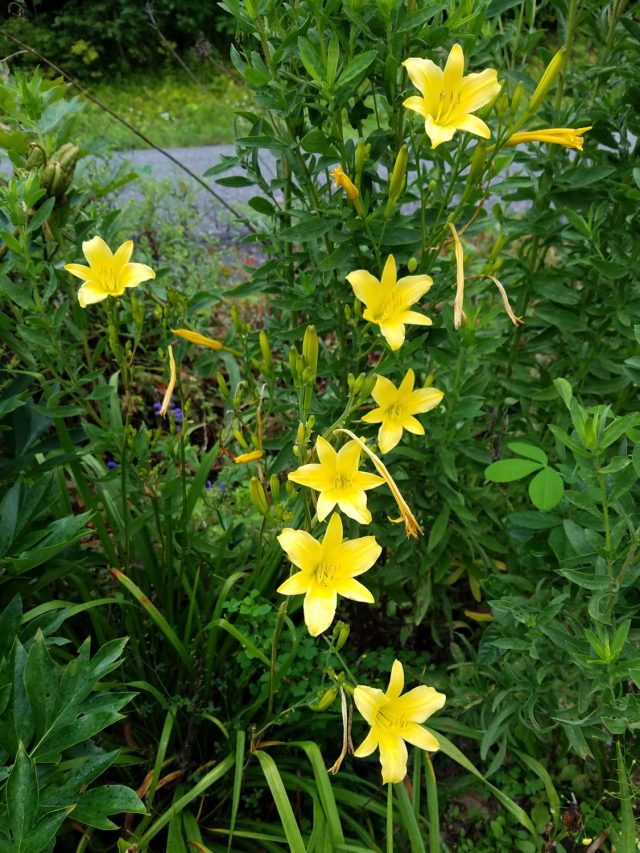
No comments:
Post a Comment